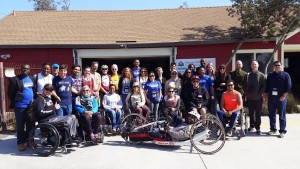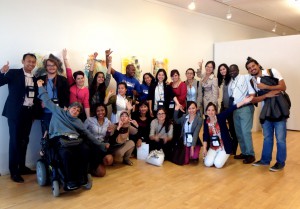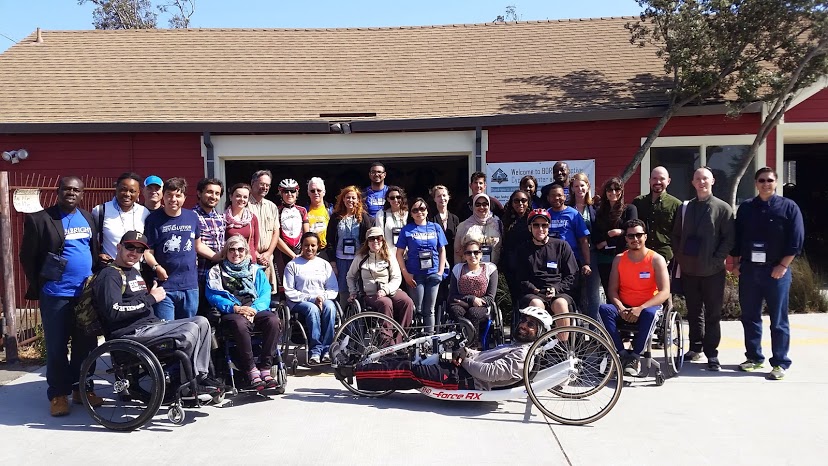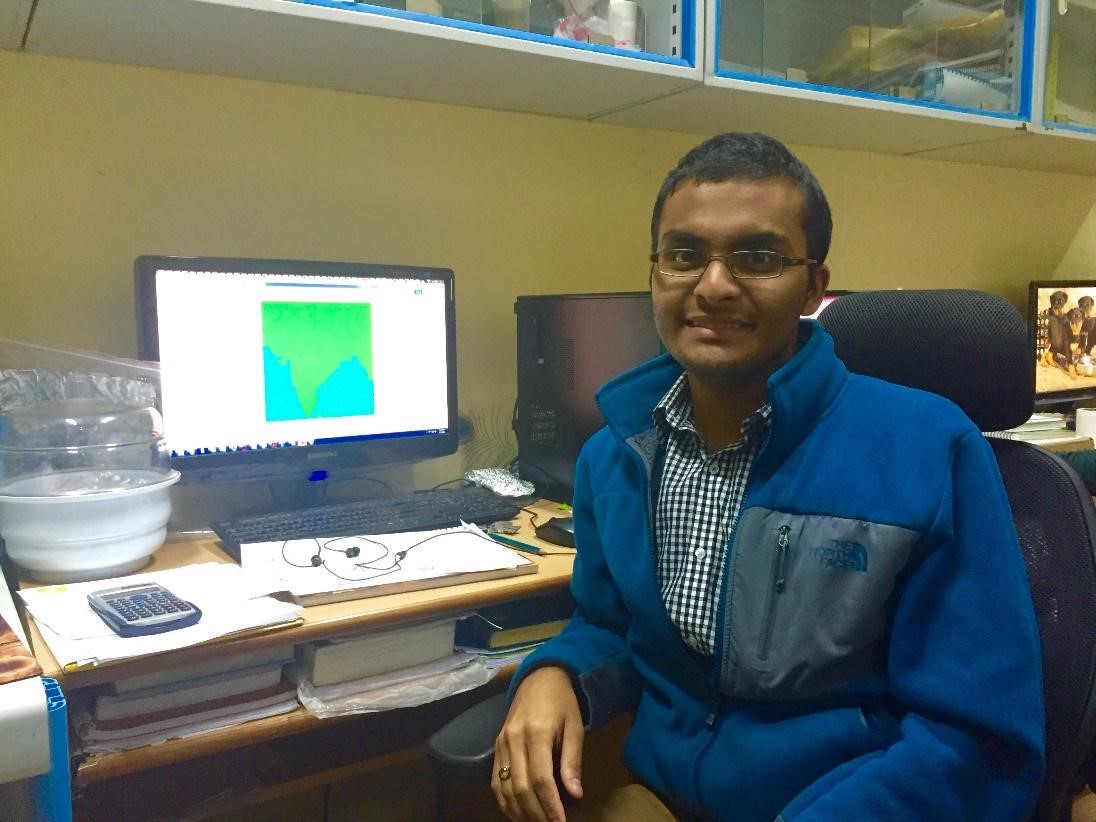
Fulbright Disability Seminar attendees at an offsite session at the Bay Area Recreation and Outreach Program
Are you a U.S. citizen with a disability interested in applying for a Fulbright grant? Attend the webinar for applicants with disabilities on Friday, June 12, 3:00 p.m. – 4:00 p.m. ET. To learn more, click here.
“The disability community is the one minority group that you can join.” In her key note address, Paralympics medalist and humanitarian aid worker, Tiana Tozer, shared her story of becoming disabled at the age of twenty when a drunk driver hit her car in oncoming traffic. Through her story, Tozer touched upon common assumptions, attitudes and stigmas that reinforce the exclusion of those with disabilities. She called on Fulbrighters to “educate change” through leadership and service and set the tone for an eye opening, interactive seminar.
From April 29 to May 3, over sixty Fulbrighters from forty different countries attended the Fulbright Enrichment Seminar on U.S Disability Rights in Berkeley, California. This seminar is one of several enrichment seminars that the U.S. Department of State sponsors for Fulbright Foreign Students in the United States.
Throughout the seminar, participants heard from key figures in the disability rights movement as well as those working towards broader community inclusion through policy, advocacy, and design. Several sessions stood out as exceptionally inspiring.
Dr. Victor Pineda advocated for innovation, pointing out that when individuals with disabilities have choices, they choose independence. Neil Jacobson directed Dr. Pineda’s call to innovate by encouraging the invention of technology that helps humanity as a whole, instead of focusing on expensive technologies exclusively for the disabled. Haben Girma, spoke movingly about her struggle to receive equal access in college as a deaf and blind student. This experience of exclusion motivated her to become a public service lawyer working to protect the rights of disabled people around the country.
Participants also brought their own unique perspective and inspiration to the table. Conversation topics ranged from the affordability of prosthetics and lack of infrastructure in war-torn countries, to inventions, patents, and healthcare reform in developing communities.

Disability seminar Fulbrighters taking in artwork by local artists with disabilities at the NIAD Art Center
For Fulbright Alumni Ambassador Cameron Kruse, the most rewarding part of the seminar was having the privilege to look through a window into the lives of some of the current Fulbright Students. During one of the sessions led by the Bay Area Recreation and Outreach Program (BORP), Kruse witnessed a grantee with cerebral palsy beaming as she rode a bike for the first time in her life. During a session with Through the Looking Glass, a grantee teared up as he discussed his deeply ingrained insecurities when it came to parenting with a disability. Moments like these gave participants, as well as program staff and Fulbright Alumni Ambassadors, a glimpse into the adversity that many Fulbrighters have worked to overcome.
Indeed, much of the credit for the success of the seminar goes towards the Fulbright grantees and their willingness to share and engage with one another. It was striking to see how the Fulbright Program, by fostering mutual understanding between cultures, also created a space for creating a network of allies, particularly for attendees with disabilities. Bernardo Carlos de Olivera, a visiting scholar at Columbia, wrote, “I found my peers, I found energy to keep on going, I also found strength to fight for a better, more sustainable, inclusive world. During the seminar I got so emotional. I recalled my childhood, poor conditions, no schools prepared for me, few minds open for me as a disabled child. After 67 surgeries and many days at the hospital I reached half of my dream! I became a Ph.D. student. Now it’s my responsibility to help people like me from all over the world.”
Participants left Berkeley enthusiastic and committed to using the knowledge and inspiration gained at the seminar to promote community inclusion. There have already been responses to Dr. Pinada’s call for action plans in their home communities. The seminar group is keeping each other updated on their ideas through social media. Gulzhan Amangeldinova plans to open up a business employing people with disabilities in her native Kazakhstan. Maria Sabeva intends to visit a local house for the blind and eventually create a documentary on the issue of disability rights in her home country, Bulgaria. Students were not only motivated to advocate and use their skills for a more inclusive world, but continue to be motivated and supported by the networks they have established with one another.
The success of the seminar is a testament to the power of educational exchange and the importance of the Fulbright Program as a vehicle for promoting international partnerships that promote and protect equal access and human rights for all.
What is your action plan to create a more inclusive world? In the words of disability rights leader, Pat Wright, “You can change a lot with the skills you have.”
The Fulbright Program does an exceptional job of accommodating individuals with disabilities. If you have a disability, you should not consider this a deterrent to applying for a Fulbright grant, but rather, as feature of diversity that is highly valued. Visit this link if you would like to learn more pursuing a Fulbright grant with a disability. (http://eca.state.gov/programs-initiatives/disabilities-exchange-programs)



No Comments